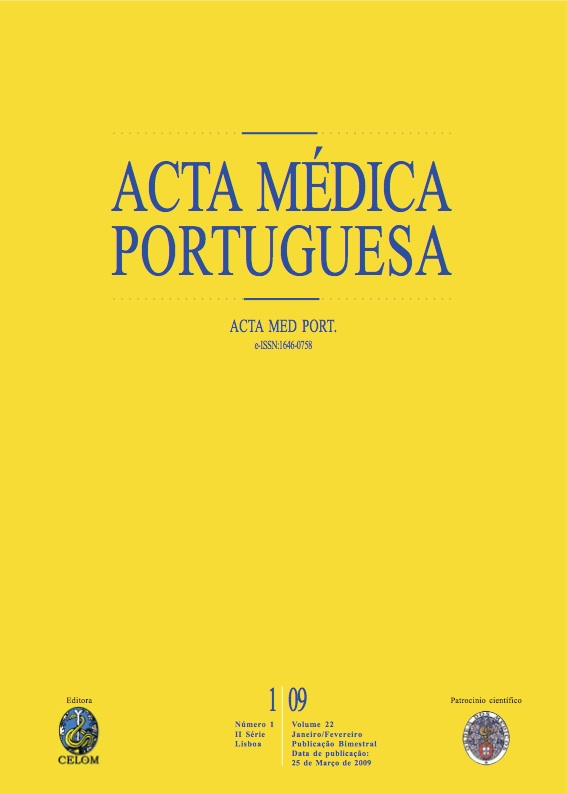Azathioprine in inflammatory bowel disease.
DOI:
https://doi.org/10.20344/amp.1686Abstract
Characterisation of an Inflammatory Bowel Disease (IBD) population treated with azathioprine (AZA) and evaluation of AZA safety and efficacy.Retrospective analysis of IBD patients attending our Gastroenterology department in a six months period. Results: In 137 IBD patients, 30 began AZA treatment; 18 Crohn's disease (CD) and 12 ulcerative colitis (UC). Mean time of treatment was 3.2 years. The reason for treatment was: 76.6% steroid dependent or steroid refractory (SD/SR) disease, 10% prevention of postoperative recurrence in CD, 10% fistulising CD and 3.3% extra intestinal manifestation. Adverse events occurred in 33.3% patients, requiring discontinuation of treatment in 13.3%. Clinical remission rate was 75% in the 28 patients that completed six months treatment (p equal 0.0013): 76.5% for SD/SR disease; 100% for prevention of postoperative recurrence and extra intestinal manifestation; 0% for fistulising CD. The proportion of patients remaining in remission at 12, 24, 36 and 48 months treatment were 87.5% (p lower 0,001), 46.7%, 45.5% e 14.3% (p higher 0,05), respectively.Azathioprine can be considered safe in a long term treatment and showed efficacy in induction and maintaining of remission at 12 months.Downloads
Downloads
How to Cite
Issue
Section
License
All the articles published in the AMP are open access and comply with the requirements of funding agencies or academic institutions. The AMP is governed by the terms of the Creative Commons ‘Attribution – Non-Commercial Use - (CC-BY-NC)’ license, regarding the use by third parties.
It is the author’s responsibility to obtain approval for the reproduction of figures, tables, etc. from other publications.
Upon acceptance of an article for publication, the authors will be asked to complete the ICMJE “Copyright Liability and Copyright Sharing Statement “(http://www.actamedicaportuguesa.com/info/AMP-NormasPublicacao.pdf) and the “Declaration of Potential Conflicts of Interest” (http:// www.icmje.org/conflicts-of-interest). An e-mail will be sent to the corresponding author to acknowledge receipt of the manuscript.
After publication, the authors are authorised to make their articles available in repositories of their institutions of origin, as long as they always mention where they were published and according to the Creative Commons license.









